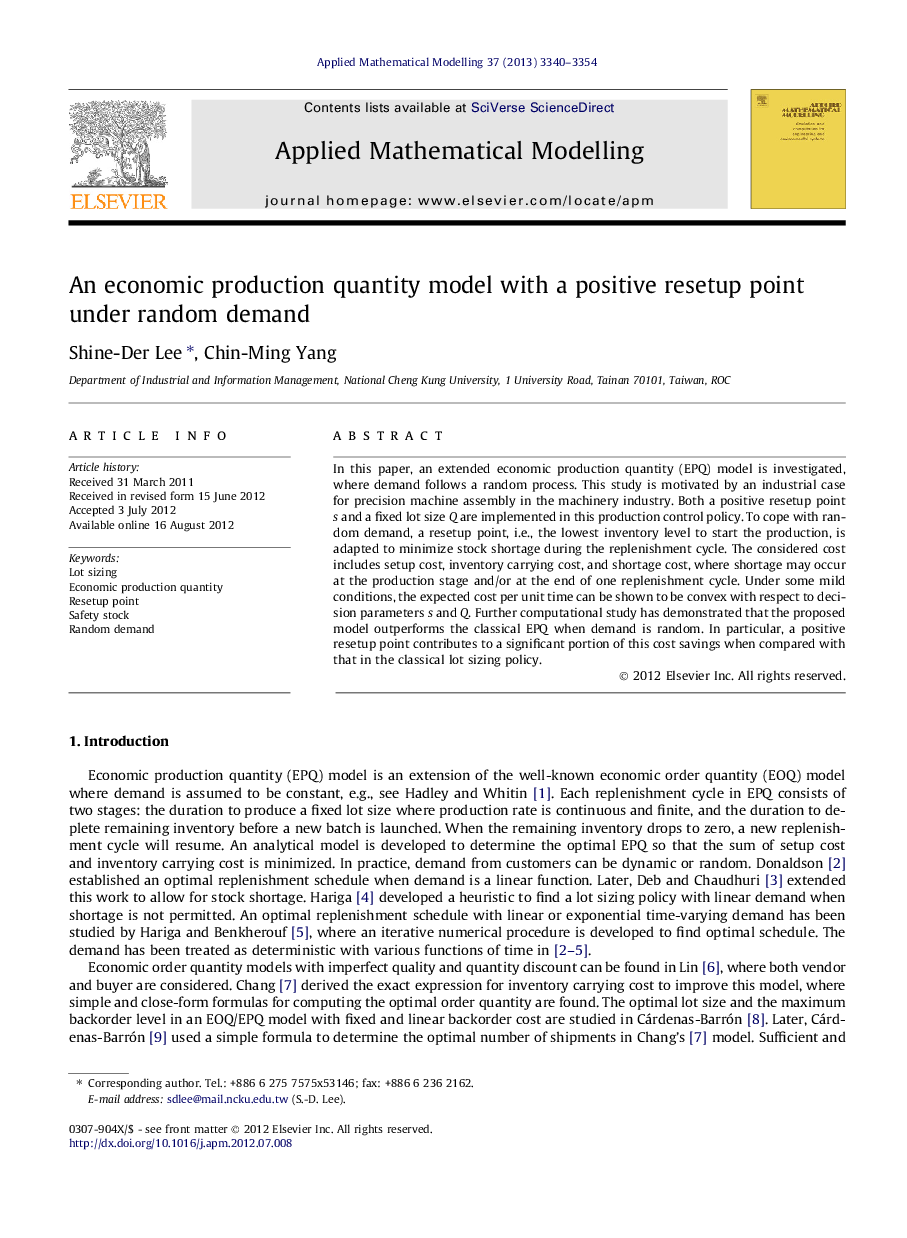| Article ID | Journal | Published Year | Pages | File Type |
|---|---|---|---|---|
| 1703979 | Applied Mathematical Modelling | 2013 | 15 Pages |
In this paper, an extended economic production quantity (EPQ) model is investigated, where demand follows a random process. This study is motivated by an industrial case for precision machine assembly in the machinery industry. Both a positive resetup point s and a fixed lot size Q are implemented in this production control policy. To cope with random demand, a resetup point, i.e., the lowest inventory level to start the production, is adapted to minimize stock shortage during the replenishment cycle. The considered cost includes setup cost, inventory carrying cost, and shortage cost, where shortage may occur at the production stage and/or at the end of one replenishment cycle. Under some mild conditions, the expected cost per unit time can be shown to be convex with respect to decision parameters s and Q. Further computational study has demonstrated that the proposed model outperforms the classical EPQ when demand is random. In particular, a positive resetup point contributes to a significant portion of this cost savings when compared with that in the classical lot sizing policy.
